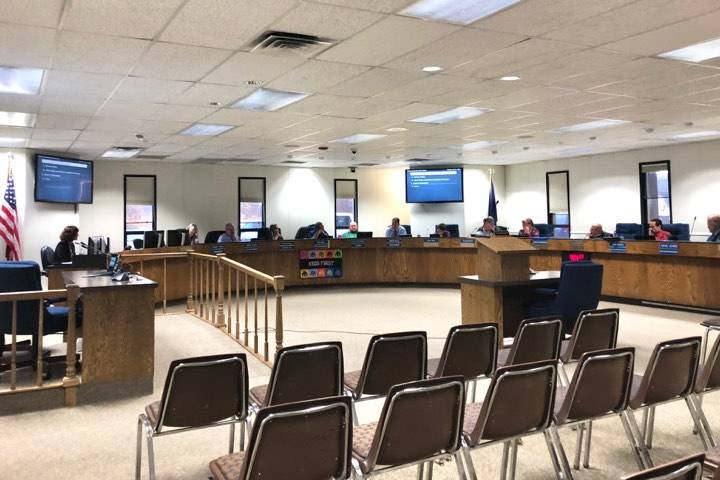The number of students being assessed as suicide risks is seeing an uptick in Kenai Peninsula schools.
During Monday’s Kenai Peninsula Borough School District Board of Education work session on school safety, assistant superintendent of instruction John O’Brien presented data regarding students who may be experiencing childhood trauma and adverse childhood experiences.
As of Monday, 45 students have been given suicide threat assessments this year. O’Brien said last year, the school district received 140 threat assessments, the highest number ever.
Also as of Monday morning, there were 60 referrals to the Office of Children’s Services so far this year.
“The mental health of our students is very important,” O’Brien said.
Clayton Holland of Pupil Services, which works with special education in the district, continued the presentation focusing on the topic of bullying.
“School climate and culture impacts bullying on students,” Holland said at Monday’s work session.
The district uses threat assessments for students who may be of concern.
“It could be a direct threat, a threat on social media or some unusual behavior occurring,” Holland said.
Holland said a safety tip line is in the works. The line would potentially cover bullying, suicide, threats to facilities and other threats to student safety.
Assistant superintendent Dave Jones gave an overview of the district’s emergency plans.
“It’s important for people to know and understand our emergency guidelines and processes,” Jones said.
He said it’s important for parents to keep contact information current with the school district, in case of an emergency.
Last week, three schools in Soldotna went in to stay put mode after a person of concern was roaming the areas near the schools.
Unlike a lockdown, stay-put mode means the unlocked doors in the facility become locked, and a security guard will staff the door until there is no longer a threat.
The board then discussed the possibility of removing open-campus lunch hours in select schools as an extra security measure.
“How secure do you want your buildings?” the district planning and operations director David May said.
“I just want to ensure, before any arbitrary decisions are done, that we include student council input for anything that’s going to change, literally, the culture of many of our schools, especially our high schools,” school board member Mike Illg said. “I don’t think (open-campus lunches) are necessarily a benefit of being able to come and go. I think it’s part of their development, to make connections, responsibility. There’s a lot more going on with an open-campus than just going out and getting a sandwich.”
The board also discussed the possibility of implementing key cards to control who has access to district facilities.


